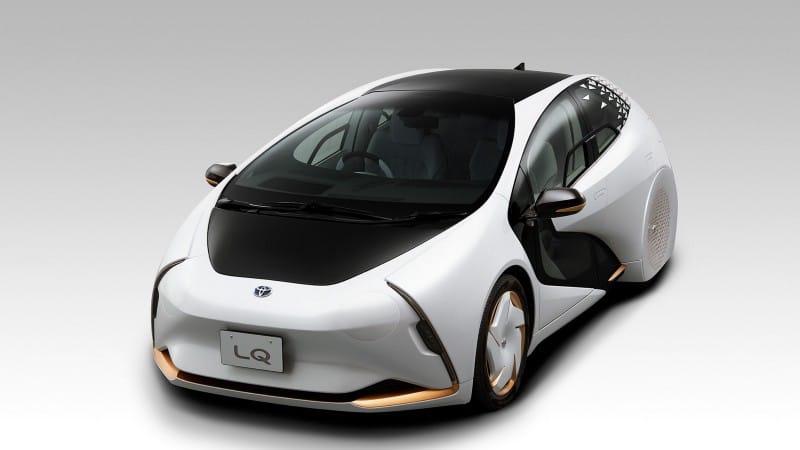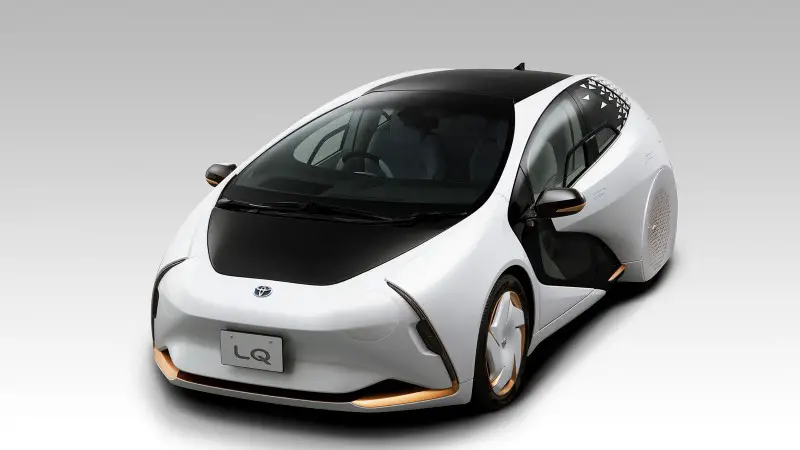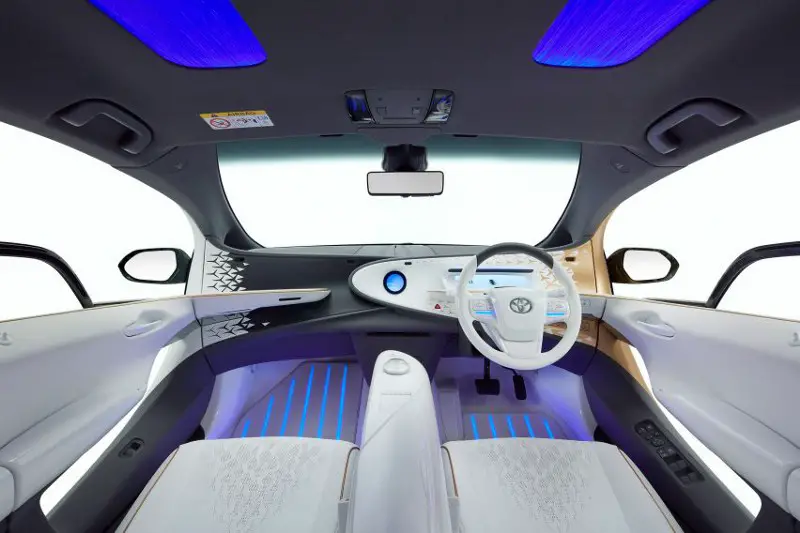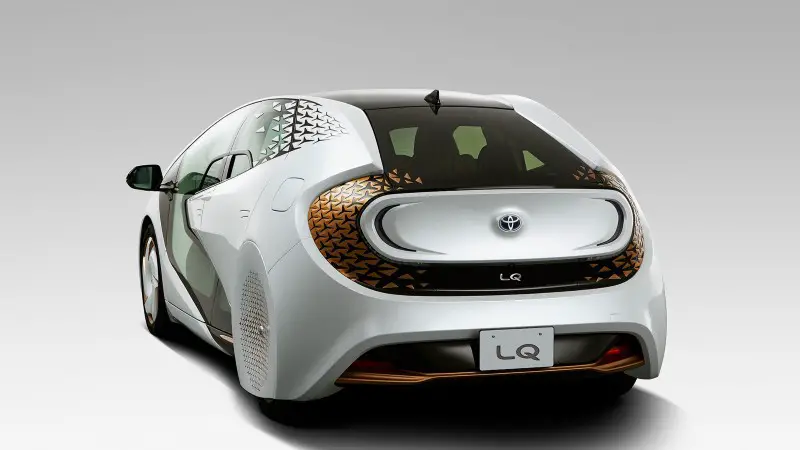Toyota’s LQ Concept Electric Car
The Toyota LQ is both fully electric and equipped with an SAE level four equivalent automated driving system, meaning no human…


The Toyota LQ is both fully electric and equipped with an SAE level four equivalent automated driving system, meaning no human intervention is needed to drive the vehicle.
Its main feature, however, is the onboard AI-powered, interactive agent, called Yui, which provides a personalized mobility experience by learning and responding to the driver’s emotional and physical state.
The LQ concept is based on the idea that mobility goes beyond physical transportation to include the human need to be moved and engaged emotionally.

These AI features include an air-conditioned seating system that self-adjusts according to the driver’s levels of alertness and relaxation and an automated valet parking feature.
The car also includes LQ’s augmented reality-enhanced “head-up” display, which presents the car’s driving information such as lane warnings, road signs, and route guidance without the driver having to look away from the road.
In addition to the typical transparent head-up display, the LG uses augmented reality to expand this data display area to the windscreen to further reduce the driver’s eye movement.
As a safer alternative to buttons, drivers can engage with the AI agent using interactive voice communication. This can be used to activate in-seat functions designed to increase alertness or reduce stress, to turn on the air conditioning, to release fragrances, or to turn on lights inside the car.

Yui can also select and play music based on the driving environment, and provide real-time information on topics of interest to the driver.
Other personalized safety features include the LQ’s smart seats, a world-first in seating technology. Embedded with a series of inflatable “air bladders”, the seats work with an in-seat air conditioning system to help keep the driver alert or relaxed depending on the situation.
When the system recognizes that the driver is tired, it inflates the air bladder in the back of the seat to support an upright sitting posture and directs cool air onto them.




